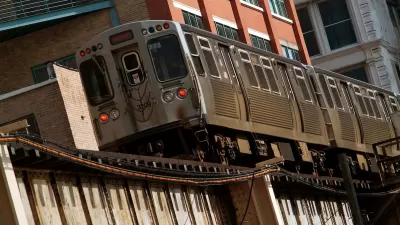Transport Textbook maps new data about car ownership in Melbourne, and finds clear evidence that transit makes a difference.
"Melburnians supposed psychological attachment to their cars long been used as a reason for not upgrading public transport, but I wonder if it's really true. Whilst people aren't always rational (some might say aren't often rational), they do still respond to incentives, and if the train gets them to work faster/more comfortably than their car then my feeling is that they would take the train. Whilst I don't have the datasets (or the patience) to undertake comprehensive statistical hypothesis testing, there's plenty of map based data from the ABS and DPCD which should offer some good insights into the question.
Some basic assumptions
The idea that Melburnians are wedded to their cars implies that public transport use is not a function of public transport quality - if it were then it would be a good indication that people were making transport decisions based on the merits of their options. To test this, we can compare public transport modal share and average cars per household in parts of the city with good and bad public transport quality. To assess what constitutes a good public transport service, I'm going to take a very simple approach - namely that trams and trains are good, and that buses are bad. It's certainly a simplistic assumption, but a largely necessary one if I'm to use the map data. In any case, I think it's fair to say that, on average, the quality of service on Melbourne trains and trams is much higher than on buses.
FULL STORY: Are Melburnians Wedded to Their Cars?

Alabama: Trump Terminates Settlements for Black Communities Harmed By Raw Sewage
Trump deemed the landmark civil rights agreement “illegal DEI and environmental justice policy.”

Planetizen Federal Action Tracker
A weekly monitor of how Trump’s orders and actions are impacting planners and planning in America.

The 120 Year Old Tiny Home Villages That Sheltered San Francisco’s Earthquake Refugees
More than a century ago, San Francisco mobilized to house thousands of residents displaced by the 1906 earthquake. Could their strategy offer a model for the present?

In Both Crashes and Crime, Public Transportation is Far Safer than Driving
Contrary to popular assumptions, public transportation has far lower crash and crime rates than automobile travel. For safer communities, improve and encourage transit travel.

Report: Zoning Reforms Should Complement Nashville’s Ambitious Transit Plan
Without reform, restrictive zoning codes will limit the impact of the city’s planned transit expansion and could exclude some of the residents who depend on transit the most.

Judge Orders Release of Frozen IRA, IIJA Funding
The decision is a victory for environmental groups who charged that freezing funds for critical infrastructure and disaster response programs caused “real and irreparable harm” to communities.
Urban Design for Planners 1: Software Tools
This six-course series explores essential urban design concepts using open source software and equips planners with the tools they need to participate fully in the urban design process.
Planning for Universal Design
Learn the tools for implementing Universal Design in planning regulations.
Clanton & Associates, Inc.
Jessamine County Fiscal Court
Institute for Housing and Urban Development Studies (IHS)
City of Grandview
Harvard GSD Executive Education
Toledo-Lucas County Plan Commissions
Salt Lake City
NYU Wagner Graduate School of Public Service





























